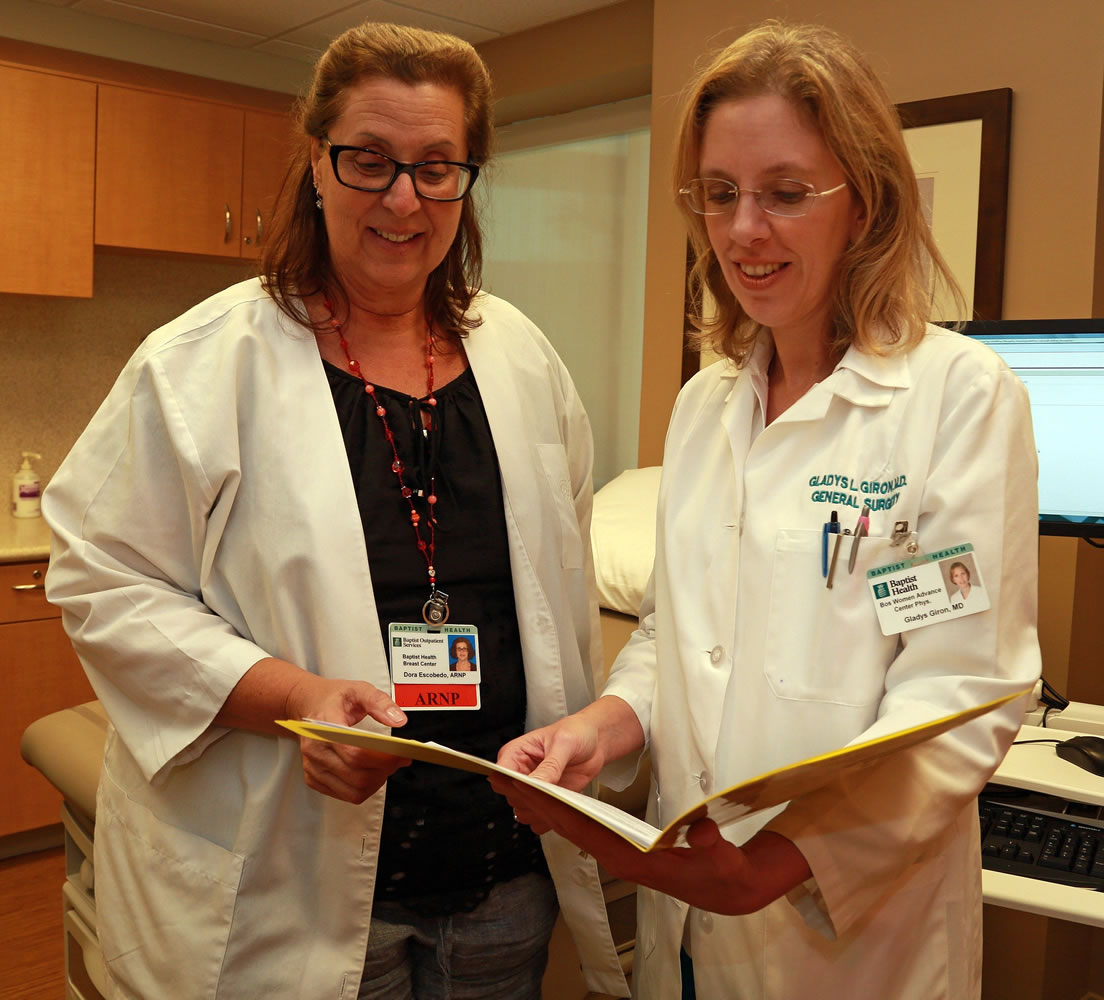MIAMI — Emma Rodriguez, a colon cancer survivor, recalls a time when she had to go through continuous infusion chemotherapy.
The 60-year-old Surfside, Fla., resident would arrive at the Sylvester Comprehensive Cancer Center at the University of Miami Miller School of Medicine and leave with a pump device that would infuse her chemotherapy over two days. She would then return to the hospital to get the pump removed. She did this every 15 days for six months.
She was cleared of cancer, but the challenges did not end there. Like many cancer survivors, Rodriguez had new difficulties arise, from managing pain to building up her physical and emotional strength.
The Centers for Disease Control and Prevention reports that about one in every 20 adults in the U.S. has survived cancer, including nearly one-fifth of all people over 65. And the treatments they’ve received can cause varied, long-lasting effects like fatigue, constant pain, numbness, balance issues and cognitive issues. Then there are the emotional difficulties like guilt, depression and anxiety.
To combat these issues, survivors incorporate various coping techniques, helped by hospital programs and support groups.
Memorial Healthcare System in Broward County offers an oncology rehabilitation services program called STAR, or Survivorship Training and Rehabilitation.
The program trains physicians, therapists, pharmacists, dieticians, social workers and other disciplines across Memorial hospitals to work together with patients on a personalized rehabilitation plan from the time they are diagnosed.
“Fatigue is one of the major complaints of cancer patients,” said Dawn Broksch, the administrative director of rehab operations for STAR. “So we tell cancer patients to walk, do cardiovascular or endurance exercises. They look at you like you’re crazy, but if you can convince them to go along with you, then they actually feel better and the fatigue actually decreases.”
Mount Sinai Medical Center, in Miami Beach, hosts women’s support groups, spa days and the Look Good, Feel Good program sponsored by the American Cancer Society. This program provides make-overs and makeup tips for women undergoing or having recently undergone cancer treatments.
Alexandra Phelan, 33, a breast cancer patient, recently attended the program.
“Doctors and nurses always recommend support,” said Phelan, who learned tips on how to work with her nonexistent eyebrows and acne due to chemotherapy. “I didn’t think I was ready or feeling comfortable. I wasn’t sure if it was going to make me stronger or weaker. I was afraid of seeing people feel bad, but I am happy I am here.”
“I tell my patients, remember that you’re still a person,” said Dr. Gladys Giron, associate medical director of Baptist Health Breast Center. “Sometimes they think they don’t have to keep taking care of themselves.”



